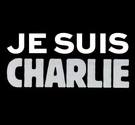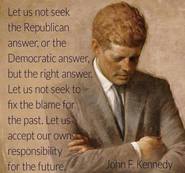
Once, in high school, I was in a debate about whether one should date or marry a person of a different religious belief. I said I’d happily date or marry a person of any religious belief (providing, of course, the person was a good person) as long as they weren’t a fundamentalist of any religion. Fundamentalists of all the religions worry me because, the greater the fundamentalism, the narrower the mindset and the greater the level of intolerance for any views outside that very narrow mindset - from the so-called Christian crusaders who bomb women’s health clinics and gun down doctors (apparently, it’s ok to kill people after they’re grown ups, but not when they’re in utero in their world because of a mandate from God; http://mediamatters.org/research/2006/02/14/american-family-association-opened-its-airwaves/134871) to the so-called Muslim Brotherhood who consider my entire gender to be unworthy of equality or respect (http://www.nytimes.com/2013/03/15/world/middleeast/muslim-brotherhoods-words-on-women-stir-liberal-fears.html?_r=0) and the list of crimes fundamentalists of many religious “faiths” have or would like to commit against women, gays, all of humanity, goes on…and on…and on.
In times of trouble, everyone wants a scapegoat. It’s natural. We see injustice and we cry out for justice, or, on a baser level, for vengeance. Principle, however, should trump those immediate visceral emotional responses. If we believe in equality, tolerance, temperance, and democratic justice, we can’t just mouth those beliefs off in easy times, but, when the going gets tough, say, “Oh, just kidding. Let’s have a pogrom.” It doesn’t work like that. That would be hypocrisy, people.
Although not at all the same as what average, run-of-the-mill, moderate Muslims are experiencing in the post 9-11 world, I can empathize at least a little. I was raised Roman Catholic and while I disagree with many of the extreme views (sensing a theme against extremism here?), I greatly admired my Catholic grandparents who were everything that was good and kind and pure about the religion. They stressed tolerance of all people and faiths, acceptance, service to humanity as a whole, humility, and, above all, unconditional kindness and compassion. I was lucky enough to be part of a church that also espoused those views and was quite progressive. My pro-women and pro-gay views were both accepted and welcome. I no longer “practice” (and by that I mean I am not a regular church goer), but I still consider myself to be Catholic. When the scandals with the Catholic church’s involvement in hiding and/or protecting priests against multiple charges of child abuse became mainstream media and public sentiment was quite strong against Catholicism, I felt ashamed and embarrassed merely by association, as I imagine many Muslims must feel when they hear about a horrible act like today’s taken, possibly (news reports are still rough and early about today’s Charlie attack) in the name of their faith. At the time of those scandals, I wasn’t going to church and was totally uninvolved in religious activities, but the scandals actually re-involved me in some ways. I would volunteer that I was Catholic to others and I felt the need to try to be a good example, to do good things, both to honor my grandparents’ practice of a religion they loved and to honor all the good and kind people who had been sullied by the actions of the criminal priests. I wanted to stand up and be proud for all the good people and to also encourage the church to accept responsibility for its bad acts; to make, as much as possible, amends; and to take action going forward to prevent those acts from happening again.
There are always going to be good and bad and in-between people in every group – religious and otherwise. We’ve seen a lot of news media recently about police brutality (Eric Garner, for example) AND brutality against police (like the recent murders of Detectives Liu and Ramos in New York City) and it’s not crazy to be on both sides: to say ‘Hey! I’m against police brutality and I want training and safeguards in place to ensure a high level and well functioning police force AND I also respect the police and the fact they put themselves in danger for the safety of the citizenry every day and I want them to be taken care of, too.’ We CAN have it both ways. It does not logically follow that one would have to be anti police because you’re pro human rights; in fact, quite the opposite. You can simply be against brutality – by or against police (or anyone else, for that matter).
I hope that people will not be swayed by emotion and media mayhem into denigrating an entire religion because there are bad actors within it. There are really, really bad actor within every faith, every group. The good news is there are also really good actors. If we concentrate on trying to take proactive and positive steps to improve things and help one another, we will go a lot further than if we focus on hate, intolerance and narrow viewpoints. Whether we’re atheists, Christians, Jews, Muslims, cops, or journalists. A recent example of a positive human response to a terrible act was Australia’s. A gunman held people hostage in a cafe in Sydney and, rather than running out to crucify some scapegoats, thousands of Australians posted messages of support for Muslims in Australia who were afraid of an Islamophobic backlash, making the hashtag #IllRideWithYou famous. http://www.bbc.com/news/blogs-trending-30479306 (“[t]hat was just a very small act of kindness to a frightened Muslim women on public transport and it pretty much broke my heart"). Kudos to Australia. They took something awful and created beauty out of the aftermath. They showed their true inner strength and humanity. I hope the rest of us can do that, too.
Je Suis Charlie.



 RSS Feed
RSS Feed
